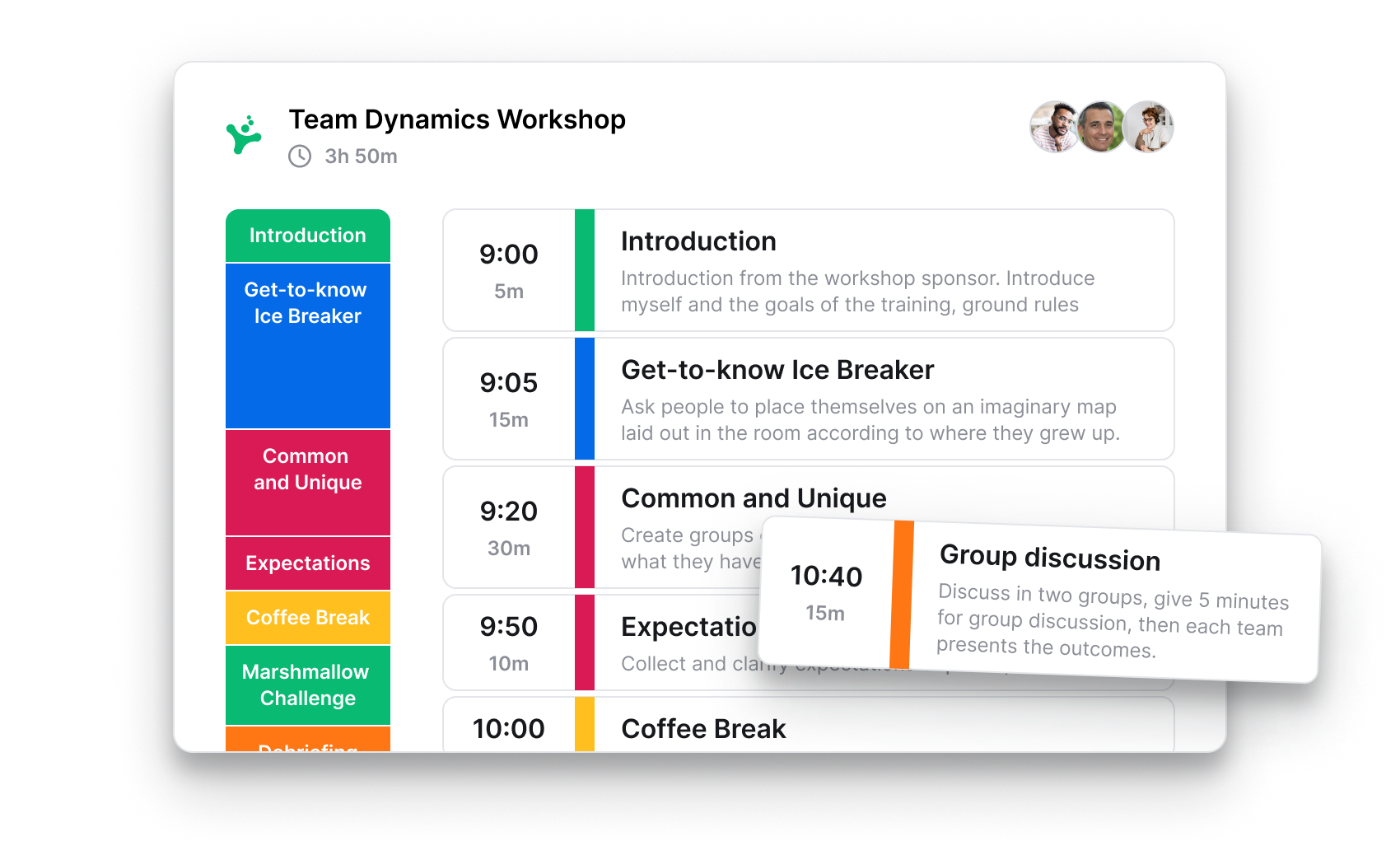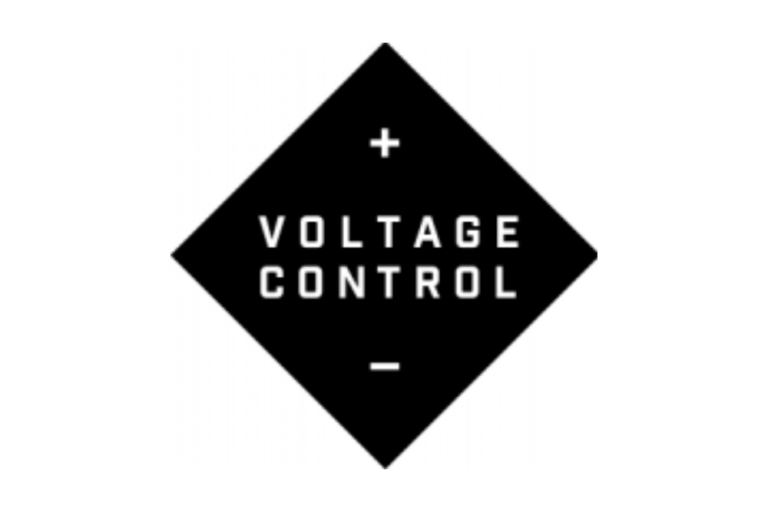
How Voltage Control designs and facilitates impactful workshops with SessionLab
Voltage Control is a top facilitation academy that focuses on improving how teams gather and move towards desired outcomes. They
Build a company-wide culture of facilitation and improve meeting and workshop outcomes securely and at scale.
Unleash your team’s potential with a tailor-made enterprise plan: unlimited workspaces and seats, advanced security, flexible licensing, and more.
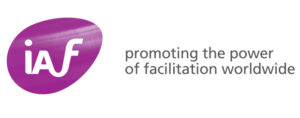

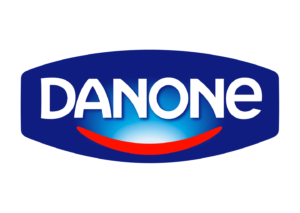
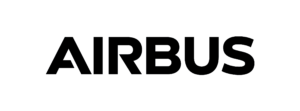

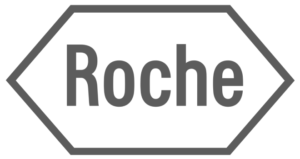


Spread best practices and create a culture of facilitation with a library of approved session templates and methods.
Create a unified knowledge base for leaders and facilitators across the organization. Sort by tag and team to quickly find high-quality materials for any session.

Help leaders across your organisation save time and effort designing agendas with a flexible session design tool.
Quickly design from scratch or customise company-approved templates in minutes. Collaborate with co-facilitators and subject-matter experts in one-place.
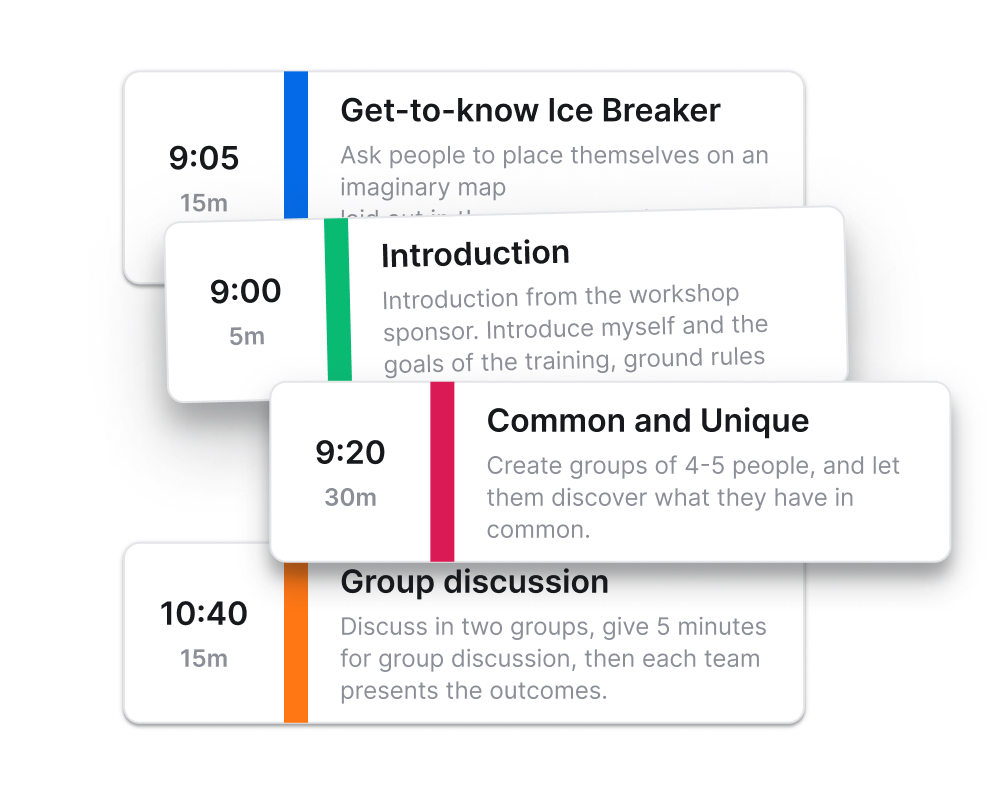
Enterprise-grade security, reliability and privacy. Keep your data safe and meet compliance needs with advanced measures including:
Stay in control of your workspace with advanced admin controls.
Quickly configure permissions and access rights for members and guests.
Easily create and manage multiple workspaces to handle group access and share information efficiently.
Domain management tools and audit logs as standard.
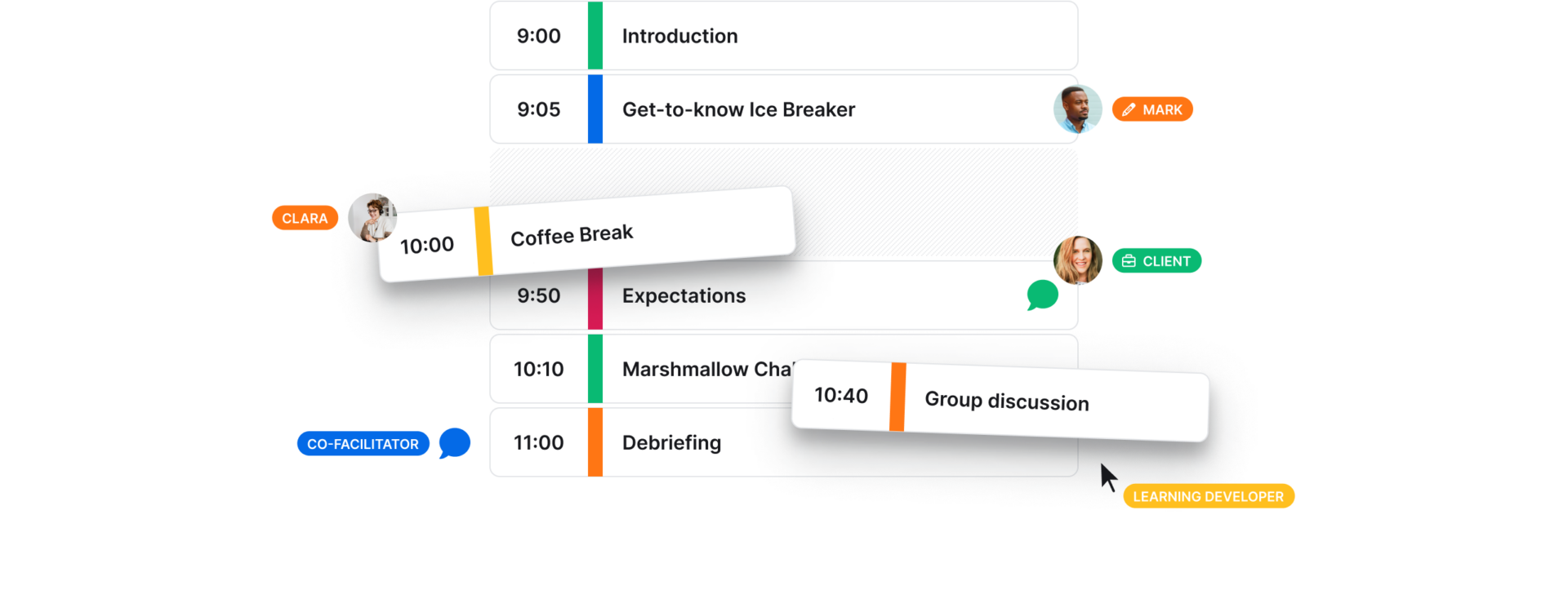
A well-structured, minute-perfect agenda is the foundation for a successful project.
Run more productive sessions, save time in the planning process
and deliver innovation faster with SessionLab.
Roll out SessionLab to your entire organization risk-free. Add and remove seats with ease.
Explore flexible licensing models and custom contracts designed to meet your needs and enable collaboration at scale.

A dedicated Customer Success manager will help you and your team get up to speed quickly. Receive customized onboarding and training opportunities tailored to your organization.
Use our comprehensive Help Center to efficiently support employee onboarding and training. Speak to a human quickly with priority email and chat support.


Voltage Control is a top facilitation academy that focuses on improving how teams gather and move towards desired outcomes. They

Thrive Impact is an agency whose mission is to solve nonprofit leader burnout and enable NGOs to enact meaningful change.
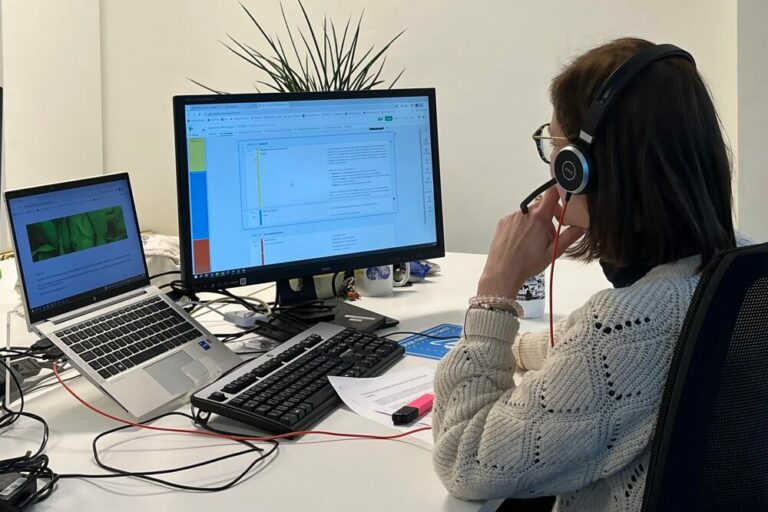
Vlerick Business School is one of the highest ranked business schools in Europe. As part of the Learning Innovation Hub,
Unlimited seats, teams and workspaces. Advanced security, usage insights, flexible licensing and more. Build a company facilitation culture with SessionLab.
